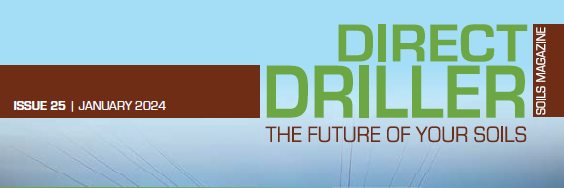Farm risks rise as subsidies fall
The competent and effective manager keeps a weather eye out for storms which threaten their organisation. The ‘threats’ can be sudden, coming out of nowhere or alternatively events which have been building up for some time. Threats are sufficiently important to be the T part
of the highly regarded SWOT business analysis technique. Management books and MBA courses provide lists of threats and dangers, plus the accompanying risk analysis, all which make effective tick boxes.
Real life is different, coming in with a blind side manoeuvre to wrong-foot you. Farming is a risker business now than it was just ten years ago, and the risk is far more than weather, disease and pests. The drop in your farm subsidy due to the Sustainable Farming Incentive is, as they say, ‘unprecedented’ because this is the first time a subsidy like Basic Payment has been withdrawn and replaced with something quite different. But there has been time to consider the consequences.
The same may apply to the possible glyphosate ban. It’s a risk which needs addressing as it has been on the table for more than five years. Other risks might have shorter introductions. What if a government decides to impose a ban on diesel powered tractors? (not, I can assure you, something which has been in any way considered… for the moment).
Or insist that workers wear respirators? Effective managers have this constantly in mind – the “what if…” being their constant need to consider, assess and control farm operations. They need to think ahead, yet at the same time look behind for any previous experience and any relevant and useful data. It’s one good reason for keeping those farm records – for ever. They are more than history.
Risk is also bound up with farm safety. It involves staff and many others from delivery drivers to walkers on your public footpaths. The continued toll of serious and fatal farming accidents indicates the urgent need for safety to be addressed. Here’s a thought….Hi-vis vests make people visible and their very existence spells out the farm’s commitment to safety. You can get them for around £2 and have the farm name printed on them to advertise your safety concerns.
Weather risks can hit crops and yields, and this year I have heard of many disasters in spring sown crops, especially barley. Drought followed by constant rain reduced yields on some farms to under 4 tonnes/ha. In many instances it’s not too clear what the main culprit was, or if there was anything which could have been done. The big question is not so much whether 2024 will be a repeat performance, but what could be done at and before drilling to reduce the effects should the season be repeated.
Seasonal greetings to all, and may your wassailing provide a fruitful 2024! There’s good reason why so many farms are named ‘Hope Farm’.
